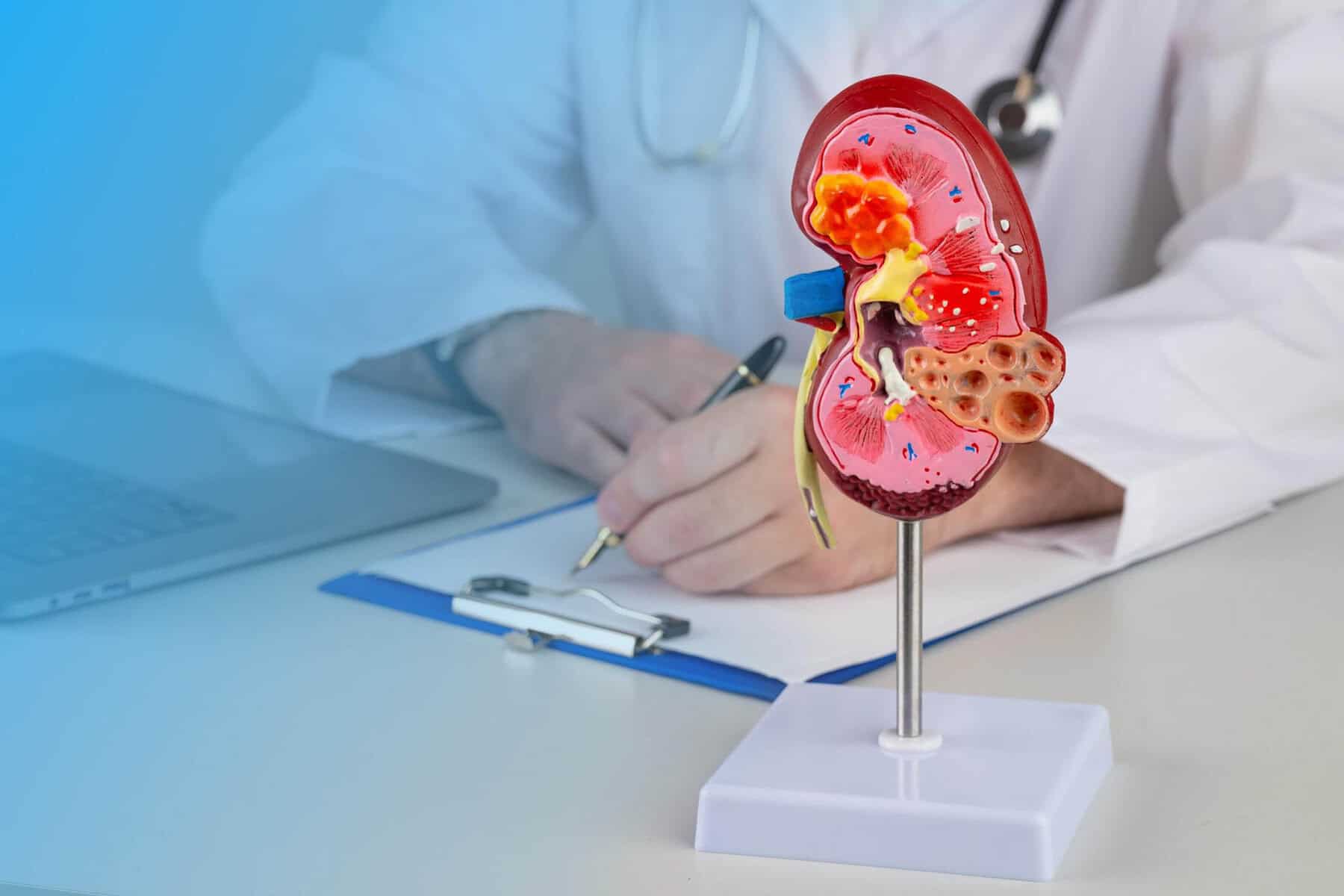Kidney stones are hard mineral and salt deposits that form inside the kidneys. They develop when certain substances in the urine (such as calcium, oxalate or uric acid) become too concentrated, leading to crystallisation. These crystals can stick together, forming stones that may vary in size, from as small as a grain of sand to as large as a golf ball.
Though some stones remain in the kidneys unnoticed, others may move into the ureter, the tube connecting the kidney to the bladder, causing intense discomfort. Early recognition of kidney stone symptoms is key to preventing complications like urinary infections or damage to the kidneys. With prompt kidney stone treatment, most people recover fully, but knowing what to watch out for is crucial.
Common Symptoms of Kidney Stones
Severe Pain (Renal Colic)
The most well-known symptom of kidney stones is renal colic – sudden, severe pain that typically starts in the lower back or side, just below the ribs. The pain may radiate to the abdomen, groin or genitals, depending on the stone’s location. It often comes in waves, fluctuating in intensity as the stone moves through the urinary tract. For many, this pain is so intense it leads to emergency medical visits.
Hematuria (Blood in Urine)
Blood in the urine, known as hematuria, is another common sign. You might notice pink, red or brown discolouration in the urine, or it may only be detectable through a urine test. This occurs when the stone irritates or scratches the lining of the urinary tract, causing small vessels to bleed.
Urinary Symptoms
Kidney stones can lead to a range of urinary symptoms, particularly if the stone moves into the lower part of the ureter or near the bladder. These include a burning sensation when urinating, the need to urinate more frequently, or a strong, sudden urge to urinate. In some cases, only small amounts of urine are passed, or urination may feel incomplete.

How Kidney Stones Are Diagnosed
Diagnosing kidney stones usually begins with a physical examination and a detailed discussion of symptoms. A urinalysis is often the first step. This can reveal the presence of blood, infection or crystals that indicate stone formation.
Imaging tests are typically used to confirm the presence, size and location of the stone. These may include an abdominal X-ray, a non-contrast CT scan (which is highly effective at detecting stones), or an ultrasound; particularly for people who need to avoid radiation exposure, such as pregnant women.
Blood tests may also be carried out to assess kidney function and check for high levels of minerals that contribute to stone formation, such as calcium or uric acid.
Risk Factors for Kidney Stones
Several factors can increase your risk of developing kidney stones. One of the most common is dehydration. Not drinking enough water reduces urine output, making it easier for minerals to become concentrated and crystallise.
Diet also has an effect. High intake of salt, animal protein or foods rich in oxalate (such as spinach, nuts and chocolate) can contribute to stone formation. Low calcium intake can also be a factor, as calcium binds to oxalate in the gut and prevents it from entering the urine.
Genetics can also influence your likelihood of forming stones. If you have a family history of kidney stones, your risk is higher.
Medical conditions such as obesity, high blood pressure and type 2 diabetes are linked to an increased risk. Certain gastrointestinal conditions, such as inflammatory bowel disease or gastric bypass surgery, can also increase absorption of stone-forming substances.
When to Act on Kidney Stone Symptoms
Recognising the signs of kidney stones early makes a significant difference. Timely kidney stone treatment can prevent complications like infection, kidney damage or the need for surgical intervention. In many cases, small stones may pass on their own with supportive care, such as hydration and pain relief. Larger or more stubborn stones might require more advanced options like shockwave lithotripsy, ureteroscopy or minimally invasive surgery.
If you are experiencing symptoms such as severe side or abdominal pain, blood in your urine or painful urination, don’t ignore them. Speak with a healthcare provider promptly. At The Forbury Clinic, our expert urologists offer comprehensive assessment and kidney stones treatment options – helping you get back to comfort and health as quickly as possible.


